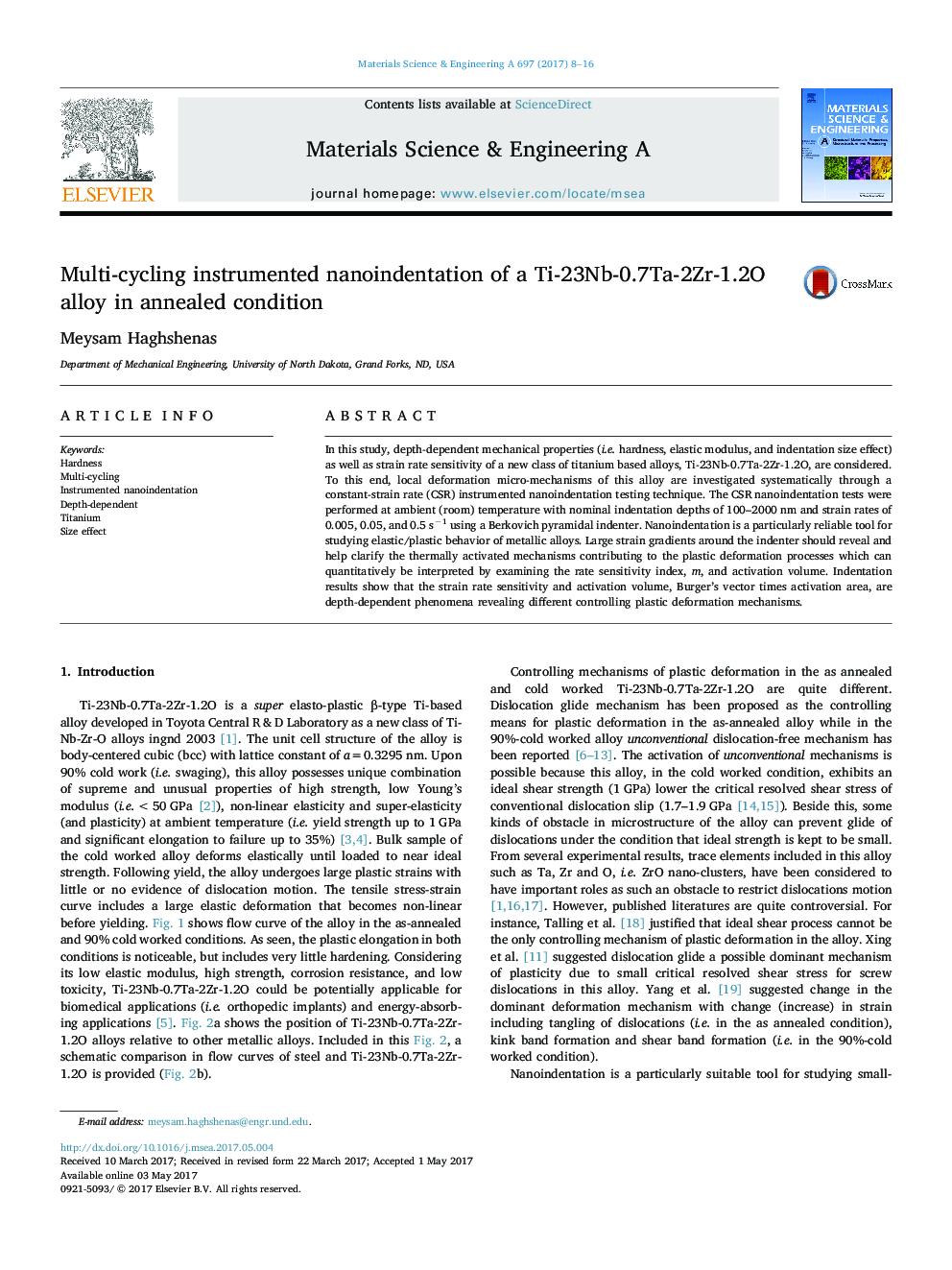| Article ID | Journal | Published Year | Pages | File Type |
|---|---|---|---|---|
| 5455743 | Materials Science and Engineering: A | 2017 | 9 Pages |
Abstract
In this study, depth-dependent mechanical properties (i.e. hardness, elastic modulus, and indentation size effect) as well as strain rate sensitivity of a new class of titanium based alloys, Ti-23Nb-0.7Ta-2Zr-1.2O, are considered. To this end, local deformation micro-mechanisms of this alloy are investigated systematically through a constant-strain rate (CSR) instrumented nanoindentation testing technique. The CSR nanoindentation tests were performed at ambient (room) temperature with nominal indentation depths of 100-2000Â nm and strain rates of 0.005, 0.05, and 0.5Â sâ1 using a Berkovich pyramidal indenter. Nanoindentation is a particularly reliable tool for studying elastic/plastic behavior of metallic alloys. Large strain gradients around the indenter should reveal and help clarify the thermally activated mechanisms contributing to the plastic deformation processes which can quantitatively be interpreted by examining the rate sensitivity index, m, and activation volume. Indentation results show that the strain rate sensitivity and activation volume, Burger's vector times activation area, are depth-dependent phenomena revealing different controlling plastic deformation mechanisms.
Related Topics
Physical Sciences and Engineering
Materials Science
Materials Science (General)
Authors
Meysam Haghshenas,
